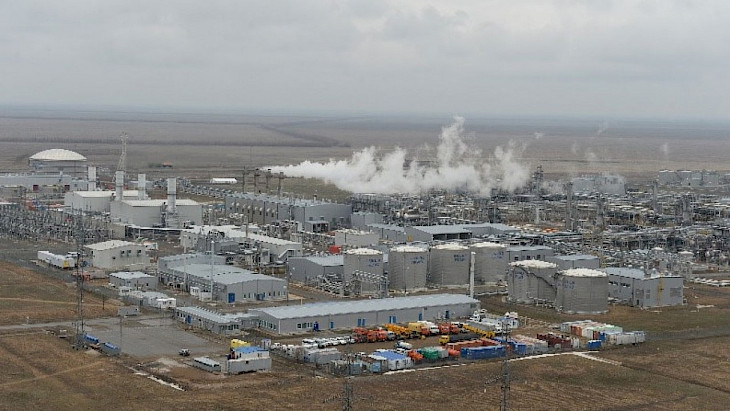Kazakhstan has officially ended its cooperation with a consortium of Western investors led by Italy’s Eni and the UK’s Shell in the construction of a gas processing plant (GPP) at the Karachaganak field.
According to the Ministry of Energy, the decision was made due to what were deemed "unacceptable economic terms" proposed by the foreign partners, Kazinform reported.
“Despite Kazakhstan's full support for the project, the proposed terms were not in line with the country’s economic interests. In particular, the investors demanded an additional $1 billion payment beyond full reimbursement for construction costs,” the Ministry explained.
Why Kazakhstan Said “No”
The gas plant, intended for one of the country’s largest gas condensate fields, had been under discussion for more than two years. The proposed facility was expected to process up to 4 billion cubic meters of gas annually.
However, in June, Eni and Shell delayed the launch of the plant from 2028 to 2030 and raised the estimated cost from the original $3.5 billion to $6 billion. Kazakhstan was asked to contribute $1 billion of that amount to ensure the project’s "profitability" for the foreign partners.
In addition, the consortium requested that ongoing arbitration proceedings be dropped—another point of contention for the Kazakh side. Analysts noted that under such conditions, investors would likely be unable to recoup their investment before the production sharing agreement (PSA) expires in 2033. Considering this, Kazakh authorities deemed further participation in the project economically unfeasible.
Shift Toward National Control
Kazakhstan’s Ministry of Energy is now exploring alternative implementation strategies. The government has approached Eni and Shell with a proposal to transfer project control to the state-owned company KazMunayGas and ensure a “structured transition of management and contractual rights” in the coming weeks.
The $3.5 billion project is expected to proceed with the existing main contractor—Hyundai Engineering Co Ltd/Sicim consortium.
Sources say the project could be financed using funds from Kazakhstan’s National Fund. Construction is expected to begin in the coming years, with the plant launch targeted for 2029.
To date, the foreign partners have invested around $60 million in preparatory work. Negotiations on compensation and the legal aspects of transferring control are ongoing.
Karachaganak – A Strategic Asset
The Karachaganak field is Kazakhstan’s largest gas condensate resource, with reserves estimated at 1.3 trillion cubic meters of gas and 1.2 billion tonnes of oil and condensate.
Currently, gas from the field is processed in Orenburg, Russia, at Gazprom facilities. However, Astana has prioritized building its own processing infrastructure to enhance energy sovereignty.
Conclusion
Kazakhstan’s move to exclude Western investors from a key infrastructure project signals a broader shift toward national control over strategic assets. The decision is not just economic—it also reflects growing political will to assert independence in managing natural resources and shaping domestic energy policy.
The agenda now focuses on realigning stakeholder roles, reinforcing national interests, and unlocking internal capacity.
CentralasianLIGHT.org
July 2, 2025

